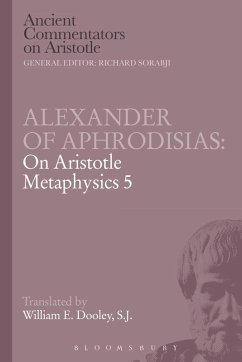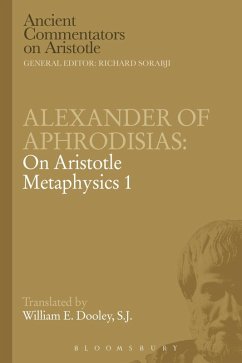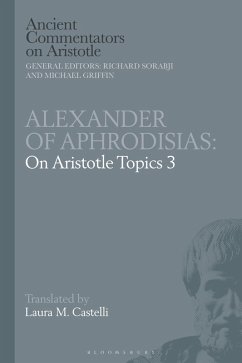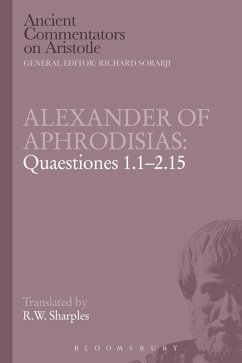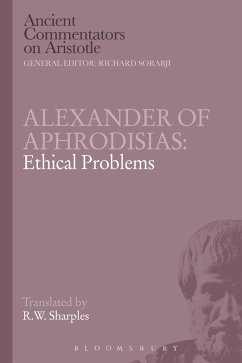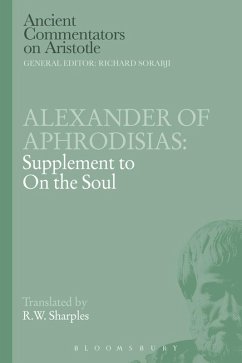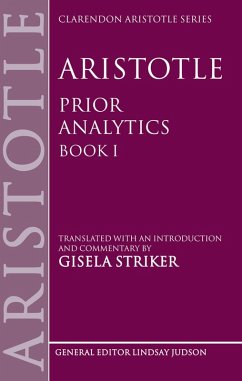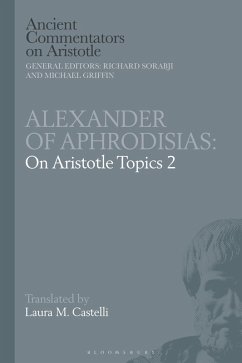
Alexander of Aphrodisias: On Aristotle Prior Analytics 1.14-22 (eBook, PDF)
Versandkostenfrei!
Sofort per Download lieferbar
32,95 €
inkl. MwSt.
Weitere Ausgaben:

PAYBACK Punkte
16 °P sammeln!
The commentary of Alexander of Aphrodisias on Aristotle's Prior Analytics 1.8-22 is a very important text, being the main ancient commentary with chapters in which Aristotle invented modal logic - the logic of propositions about what is necessary or contingent (possible). The first volume of Ian Mueller's translation covered chapters 1.8-13, and reached as far as the chapter in which Aristotle discussed the notion of contingency. In this, the second volume, the 'greatest' commentator, Alexander, concludes his discussion of Aristotle's modal logic. Aristotle also invented the syllogism, a style...
The commentary of Alexander of Aphrodisias on Aristotle's Prior Analytics 1.8-22 is a very important text, being the main ancient commentary with chapters in which Aristotle invented modal logic - the logic of propositions about what is necessary or contingent (possible). The first volume of Ian Mueller's translation covered chapters 1.8-13, and reached as far as the chapter in which Aristotle discussed the notion of contingency. In this, the second volume, the 'greatest' commentator, Alexander, concludes his discussion of Aristotle's modal logic. Aristotle also invented the syllogism, a style of argument involving two premises and a conclusion. Modal propositions can be deployed in syllogisms, and in the chapters included in this volume Aristotle discusses all the syllogisms containing at least one contingent premiss. In each volume, Ian Mueller provides a comprehensive explanation of Alexander's commentary on modal logic as a whole.





